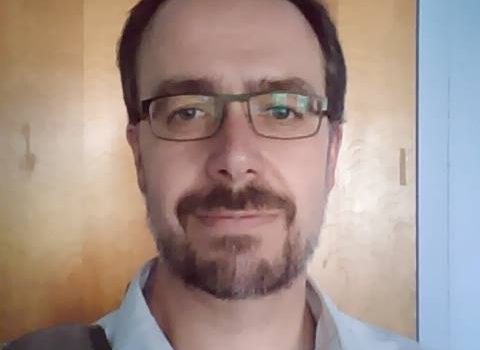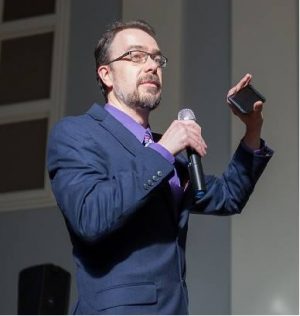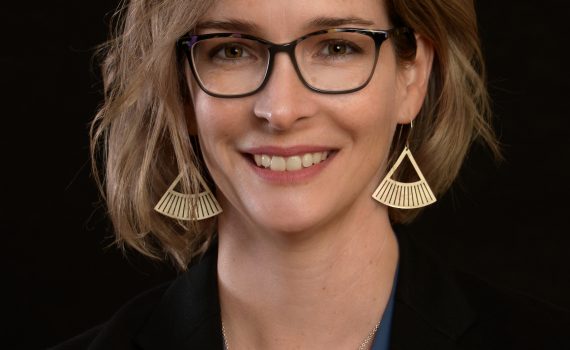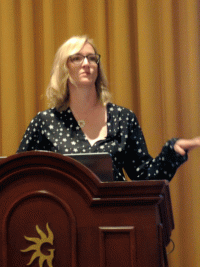
Episode 007: Kirk St Amant–The Introvert in the Classroom
Category:Higher Education,Introverted Leadership,introverts,Leadership,Podcast,UncategorizedPodcast: Play in new window | Download
Subscribe: Spotify | Amazon Music | iHeartRadio | Podchaser | TuneIn | Deezer | RSS
Episode Show Notes 007: Kirk St. Amant
Introduction
 Prof. Kirk St. Amant and Ben Woelk discuss what it’s like to be an introvert in the classroom, how we engage students, and the role of popular culture in teaching. We also discuss how we adapt to the absence of in-person feedback mechanisms in webinars and online courses.
Prof. Kirk St. Amant and Ben Woelk discuss what it’s like to be an introvert in the classroom, how we engage students, and the role of popular culture in teaching. We also discuss how we adapt to the absence of in-person feedback mechanisms in webinars and online courses.
Key concepts
- Adapting to your classroom
- Playing the role of an extrovert as needed
- Using cultural differences as learning opportunities
- Getting comfortable with delayed or no feedback
Quotable
In many ways, it kind of becomes like acting. You create the persona of who you are as the instructor and figure out how to deliver information in that persona so that students feel engaged and there’s a connection and they want to interact with the material and they feel comfortable interacting with you. And that persona is never the same. With each class you’ve got different populations that you’re working with and you adapt that persona to those populations.
There are these periods where as an introvert you have got to be on and in many ways play the role of the extrovert, but it’s the kind of extrovert the audience needs at that point in time to process and engage with the information you’re sharing with them.
These cultural differences, these age-based differences are valuable tools to use to engage students because first of all, it demystifies you as the instructor. You’re not this great all knowing sage who’s going to be up there and explain the wisdom of the universe to them.
(Doing webinars) I think that the key is getting comfortable being able to orate without that kind of feedback you’re accustomed to in many situations, and just assuming that, okay, I think I’ve done a good job.
Resources or Products Mentioned in this Episode
- Society for Technical Communication HealthMed
- Rochester Institute of Technology
- Louisiana Tech University
- The Princess Bride
- Wikipedia
Take Action!
- Follow Hope for the Introvert on Twitter
- Like my page on Facebook
- Support the podcast on Patreon
- Get swag for Hope for the Introvert and Introverted Leadership at Zazzle
Transcript
Ben: Joining us today is Kirk St. Amant. Kirk is a professor in the Eunice C. Williamson Endowed Chair in Technical Communication at Louisiana Tech University and he is also an adjunct professor of International Health and Medical Communication with the University of Limerick in Ireland. He researches international communication and information design for global audiences. His specific research focus is on the globalization of online education and health and medical communication for international audiences. He’s taught online and hybrid courses for universities in Belize, China, Denmark, Finland, Ireland, Qatar, and Ukraine, and the United States. You can contact Kirk at Kirk.StAmant@gmail.com. Kirk and I have worked together to launch a new Society for Technical Communication Special Interest Group: Technical Communication in Health and Medicine. Kirk is our first academic on the Hope for the Introvert podcast.
Ben: I’m really excited today to get your perspective on what it’s like to work in academia as an introvert. Kirk, how long have you been in academia?
Kirk: I’m going on my 16th year now in Higher Ed and enjoying every minute of it.
Ben: Did you work in industry as well or has it been solely as a professor?
Kirk: I did prior to being in academia. I worked for awhile in books of all things. I managed a small independently-owned bookstore at first and then I worked in the printing and publishing area of book production for awhile after that. It’s actually at that point that I became interested in technical communication, just trying to navigate sort of the differences between the engineering work that goes on in the printing industry and then client expectations from the sales and publishing side. So that’s where the interest came from.
Ben: Yeah, that is really interesting. I didn’t know that about your background. So, I am in academia, but I don’t really consider myself to be an academic because I work as a staff person in the information security office, although I do teach adjunct. Is there a typical day or week for you in your job and what would it be like?
Kirk: Great question! I think whether you’re in industry or academia–I think we’re in the same situation where a lot of it is you wake up in the morning and go into work and think I’ve got this organized plan of how things are going to work, and four minutes and two emails into it everything changes, and so a lot of it is kind of how to adapt as you move forward through the course of the day. Again, I think like many folks in industry, for many academics, there are the standard things you can expect. This is the slotting of courses I’m going to teach for today and you know, those are standard, but then around those courses and between them are all sorts of different activities that you need to focus on–everything from doing different kinds of research activities to sort of committee kinds of meetings to service kinds of meanings where you plan how the organization operates. So very much they’re the same. They’re the standard expected things that we all know were going to happen. And then, the unscripted stuff that we kind of get into it. It’s really enjoyable. So I think, I think Ben, this is a good example of how you can work across both domains is there’s that flexibility on both sides, and I think the personality for most of us who were in technical communication lends itself well to that mix of scripted expectation versus sort of on-the-fly working with things.
Ben: Okay. So you’re an introvert in academia. You’re certainly not alone. There are plenty of introverts in academia, but do you feel like your introversion affects your teaching style at all, and if so, how?
Kirk: Yeah, I think for the most part,–I mean you teach also and I think for many individuals they guest lecture or teach in classes Whether they’re in industry or in academia, you stand up in front of a classroom. I mean, the biggest thing is education is about drawing attention to yourself for the most part, particularly in face-to-face classes and so, in many instances you’re standing up in the front of the room and you want to call everyone’s attention to you for a sustained period of time, and if you’re an introvert, that is antithetical to how you try to often interact with individuals. And so the challenge for me at least, and I think for many other introverts in academia becomes, “How do you do that?” In many ways, “How do you sort of override your natural tendency to not want to be the center of attention all the time?” Or, to have long, prolonged periods of time of quiet to sort of think through things.
Kirk: And so at least for myself–I’m guessing for other introverts in academia–in many ways it kind of becomes like acting. You create the persona of who you are as the instructor and figure out how to deliver information in that persona so that students feel engaged and there’s a connection and they want to interact with the material and they feel comfortable interacting with you. And that persona is never the same. With each class you’ve got different populations that you’re working with and you adapt that persona to those populations. And the catch is–we mentioned adjusting on the fly–it’s that kind of a thing. In the moment you adapt your communication style to how the audience reacts and responds. So I think for me that’s the greatest challenge. There are these periods where as an introvert you have got to be on and in many ways play the role of the extrovert, but it’s the kind of extrovert the audience needs at that point in time to process and engage with the information you’re sharing with them, if that makes sense. And my guess is you’ve had that experience also as an introvert who teaches, as I’m guessing are lots of other folks in the same situation.
[bctt tweet=”There are these periods where as an introvert you have got to be on and in many ways play the role of the extrovert, but it’s the kind of extrovert the audience needs at that point in time to process and engage with the information you’re sharing with them, if that makes sense. ” username=”hopeintrovert”]
[bctt tweet=”In many ways it kind of becomes like acting. You create the persona of who you are as the instructor and figure out how to deliver information in that persona so that students feel engaged and there’s a connection and they want to interact with the material and they feel comfortable interacting with you.” username=”hopeintrovert”]
Ben: You’ve mentioned my teaching. I know for me, I really try to stay away from lectures. I really try to do much more of a discussion-based teaching format, where I’m throwing questions out there and we’re discussing them before I’ll move on to the next subject. I don’t know whether that’s an introvert or an extrovert thing. What do you do stylistically?
Kirk: We’re back to the audience and it’s a mixed bag. Sometimes it is the lecture part of the front, but I mean, let’s be honest, that gets boring very quickly. So it’s a matter of trying to figure out, you’ve got a two hour block class, let’s say, of instructional time. How do you parse that into the say 10 to 15 minutes of lecture if you will;, the 20 to 30 minutes of guided discussion; the 10 to 15 minutes of small group interaction where you move back and forth among the groups and work with them. And again, it’s kind of like you adapt what is needed based upon the information that you’re presenting and how the audience seems to be reacting to and responding to it. And I think a lot of it–I’m willing to bet you do the same thing–is you begin to get into paces and rhythms of how to do things.
Kirk: Okay, now the best way to approach this topic is I’m going to lecture this or I’m going to do the small group discussion. But, the key for me at least to success is you don’t go in with that as a set regimen of how you’re going to approach the material. You kind of go in knowing this is the subject matter I’ve got to teach and I’ve got to be ready to adapt this in different ways over the course of my presentation. And again, I think lots of folks–introverts or extroverts–when it’s an educational environment, you do wind up in this adaptive model where you shift how you approach things depending upon what’s working with the audience. You mentioned earlier like introvert versus extrovert in the classroom. I think in many ways, this is where being introverted may be an advantage in the sense that you tend to be very keenly attuned to the audience in ways that maybe extroverts might not be–and I’m speaking completely out of turn here–but, I think it’s a matter of you’re more used to knowing the quiet students to look for, if you will, because you were one of them at one point in time. And so it’s knowing how to sort of engage them and monitor how they’re reacting as well as the more extroverted students in the class to try to get them interacting. So that’s part of the joy of it. The ability to create as you’re moving forward.
Ben: So one of the things that I adjusted as I became aware of my introversion or understood more about it, and understanding that, especially in computing security, I’ve got a ton of introverts in there. It’s really changed my philosophy around group work and group projects. And I always used to assign some. And it was always obviously a challenge because you get four or five students and you’d get the one who’s making sure everything gets done and you have somebody else who is contributing, and then you have a couple who are kind of lingering on and not doing too much. But as I studied introversion, what I started realizing was they’re–in a sense–they’re meeting together on these group projects and so much of introvert meeting behavior is not advancing ideas until you’ve had time to think through them. So I’ve really modified what I’ve done around that and I don’t really assign much of it.
Ben: Now, what I do do is make them post a blog post and I have them come in front of the class and talk about that blog post for about five minutes and insist that I get three questions answered before I’ll let them sit down. Which is entertaining sometimes, but it’s a little hard on them because this class especially, is almost (all) first year students. And they’ve never had to stand up in front of anybody and talk. And given that they’re cyber security students, they may never end up doing that in their careers either. So it’s always a little interesting because you do have some students who absolutely panic at the thought of having to stand in front of people and talk, but we try to make it conversational, engaging and give them the prop of having the blog post up there so they’re not feeling like they have to wing it, and I don’t let them do a PowerPoint or anything like that either.
Ben: But it is interesting because, and like you said, it’s adapting to what you’re seeing in the classroom and what they are responsive to. And for me in that instance it was, these are people like me out in this classroom. I never liked group work–mixed results! I mean the only thing that would be worse is if I have a class that is a mix of professionals and on campus students, and pairing them together is always a disaster because the professionals get their work done, and the on-campus students have that luxury of waiting until the last minute. But it’s really interesting what you’re talking about in terms of adapting your classroom style, even though it is the same content.
Ben: So one challenge I’ve found myself in teaching is ensuring that the cultural references that I make are known and realizing what decade people were born in is always a surprise at this point. I had mentioned in a previous podcast, that I’d worked on a slide of a ROUS, a Rodent Of Unusual Size from The Princess Bride [Kirk laughing] into a presentation, and only one student knew what that was. So stubbornly, I left the slide in. I showed it last week and this time I had three students out of 30 who recognized the ROUS. But interestingly, The Princess Bride doesn’t really appear to be part of their culture now. So it’s–and they’re lots of things like that, and that’s just one example. What have you done to make sure that your illustrations or your allusions are culturally relevant to them?
Kirk: Awesome question. As corny as it sounds, I don’t. I think those things are wonderful teaching and learning prompts that we can use to draw individuals into a conversation. And so I kind of overemphasize that when I teach, you know, walking up, I’m a child of the seventies and eighties, so you need to kind of walk in there and go, “Okay, does anybody here know what the Soviet Union is or was?” Oh boy! “Can someone look that up for me right quick?” and automatically you’re parsing out activities based upon, “Can you help me learn something because I’m so–I’m a little bit dated on this?” Someone will fire it up, and, “Okay, so you found it. Where did you find it, Wikipedia? Can someone here tell me, is Wikipedia the best source to look for this? Okay, why not? Can someone else…? Help me out here!” “What are some mechanisms we could use online to do this? What’s the Wiki thing? I don’t get this. Help me out.”
Kirk: So in many ways, using these cultural differences as prompts to do a couple of things–to make the students engage with the material, but then to get them to do things and explain things, in many cases highly technical things in ways that an audience who’s completely unfamiliar with them can understand it, is a way to begin to teach them how to do things like write technical instructions or generate technical summaries or you began to–for them it’s kind of a humorous thing. And for many of them they’ve had to do it with other family members. My big joke is, and you’ve heard me talk about this before, I’ll take out my iPhone, which I’ve had for like a year now. and ask people, “Can someone tell me how to turn this on?” and it gets them going, but then they’ll begin to talk through it. “Okay. Slow down. Can you write me up a set of instructions for this?” But it’s an opportunity to engage. And I think when you demystify, for lack of a better word, your role isn’t as an instructor that I’m not this incredible font of knowledge who knows everything. I’m really flawed and I need your help. Let’s do this together. I think that does foster engagement. It really helps in terms of–especially technologies. It keeps me as the old guy in the classroom more up to date with what’s going on by having them explain things, but I also think it helps them feel more invested and because they’ve got an investment and want to help, it’s much different than me sort of assigning an artificial task in terms of let’s write an instruction set on how to log onto Facebook.
Kirk: These cultural differences, these age-based differences are valuable tools to use to engage students because first of all, it demystifies you as the instructor. You’re not this great all knowing sage who’s going to be up there and explain the wisdom of the universe to them. It’s you’re a human being like every user they’re ever going to work with, and so it’s a matter of knowing how to engage that human being based upon their limitations and design information that that human being can use based upon their background. You’re doing an audience analysis, user testing, basic research skills all around this kind of what’s seen as a detriment but really isn’t. So these cultural differences are valuable ways of engaging students and I think that’s kind of nice. You learn from them because the students provide you with their version of things, the most current version of this particular demographic group and they learn about your group, but they feel a sincere sense of connection versus providing them with an artificial example like, “Let’s all write instructions about how to log into YouTube now.” I hope that made sense.
[bctt tweet=”These cultural differences are valuable tools to use to engage students because first of all, it demystifies you as the instructor. You’re not this great all knowing sage who’s going to be up there and explain the wisdom of the universe to them.” username=”hopeintrovert”]
Ben: Yeah, and one thing–one thing that I’ve done–for both of my classes, I make my students blog and I have a WordPress.com blog that’s set up so I don’t have to worry about security settings on it. I had drafted a set of instructions on how they sign up for it and how they log into it. Now, WordPress has changed how you do things so many times over the years. I’ve just left the instructions in there as is and one of their first assignments really is, “I know these instructions are not what they should be. How would you improve them?” So it’s pretty much the same thing. It’s getting them immersed immediately in what is the work of a technical communicator? And I use this exercise when I do a technical writing and editing online class in the spring.
Ben: So online classes are interesting. I mean as an introvert or an extrovert, they’re going to be interesting. But what have you found especially challenging about online teaching and what have you done to address that?
Kirk: Well, excellent question. To be quite honest with you, I never realized how dependent I was on audience feedback as a teacher, and even as someone who’s been an introvert their entire life, never realizing how much you monitored the feedback of the people with whom you’re interacting–even if it’s in silence to sort of gauge how you’re about to do something. And then when you get to this online teaching experience where everything is reduced to text and realizing I don’t have the kinds of feedback sources I’ve used over the course of my life to gauge this audience, to interact with them, to understand them. And that’s an interesting situation to be in, how to do this. And so that I think was the biggest surprise for me is finding these ways of what are other ways of gleaning the kinds of feedback I’ve become so accustomed to using in face-to-face situations to adapt them to online teaching. I’m curious, maybe you’ve seen the same thing as an introvert also. This notion of, wow, I’m a lot more dependent on feedback than I realized and it’s missing here.
Ben: Yeah, and I’ve dealt with that with the students as well because they’re–and honestly, especially depending on how busy I am that semester and it’s an online class and a challenge for us is remembering we have that online class because we’re not showing up in front of it to lead it every day, but…so one of the challenges has been to make sure that I’m engaged with the class and they know that I’m engaged with the class. What I started doing last semester is I added a Slack workspace to go with the class and I didn’t do it–they’re not doing–they’re doing assignments in it, but I told them this is by far the fastest way to get a hold of me and we’ve had some informal assignments so they can post things and I have them post their introductions there and things like that. And there a couple of reasons: One, it is the fastest way to get a hold of me, but two, it allows me to do online office hours with them and this is an online class so I can do a video call with them, and the other part of it is I am introducing them to a tool they are going to use in the workplace or they will be using some other similar collaborative tools. So I love getting them immersed in doing that now.
Kirk: Nice. That’s a really clever approach. I like that. I’m stealing it from you just so you know!
Ben: Absolutely! Please do!
Ben: One other thing I want to touch base on in terms of the distance learning and the online presentations: We had talked I think briefly a couple of months ago where I think you had maybe done your first webinar-type presentation, and Sara Feldman and I had quite the discussion about how that was speaking into the void because you get no feedback whatsoever. What have you found with that and if you found anything that’s well–is that your experience with it and have you found anything that’s helpful?
Kirk: That’s a great, great question and observation. Yes. In fact, ironically before we spoke today, I just did a webinar for STC, and I’ve done a number of them now, and there still is that phenomenon of speaking into the void. I think it’s just something that you begin to adapt yourself to and learn to work with, and you begin to apply that to online teaching as well. So now, for example, when I do teach online, I feel more comfortable creating audio recordings to go with classes, because when you’re sitting at your computer or writing and recording at the same time, in many ways, it mirrors that webinar experience. So it–it kind of cross pollinates how it works. I’m still trying to figure out how to adapt to that sort of environment, and it’s–for all of us–it’s a learning process.
Kirk: I think I’m getting more comfortable speaking out loud or talking to myself out loud. I don’t know if it’s wise to say that in a public forum [Ben laughing], but, you know, I’m not comfortable having conversations with myself. But, I think that’s the key is getting comfortable being able to orate without that kind of feedback you’re accustomed to in many situations, and just assuming that, okay, I think I’ve done a good job. I’m now going to go onto the next point. One thing I’ve learned–and maybe you and others have experienced it also–is there’s a tendency when you’re in instruction mode to stop every so often and asked for confirmation of comprehension. “Did that make sense? Okay. Before I go on, are there any questions?” and it’s learning in that Webinar format where you would naturally do that and maybe giving a little bit more space or pause to allow individuals to maybe process that information before moving on. I’m still kind of learning how to come to terms with the notion of the time-delayed question, where you orate for the Webinar, then you get the text questions typed into a chat box after and respond to those. So it’s a learning process.
[bctt tweet=”On webinars–I think that’s the key is getting comfortable being able to orate without that kind of feedback you’re accustomed to in many situations, and just assuming that, okay, I think I’ve done a good job.” username=”hopeintrovert”]
Ben: It definitely changes the pacing a bit. I think it’s probably good because I think the other problem that we tend to run into if we’re not getting cues back is that we probably tend to go a little bit too fast, so I think having that break worked in where people can raise questions is really good. The other thing that Sarah and I found that was helpful and it’s not always an opportunity, but when you’re co-presenting, we’ve been on video with each other at the same time, whether we’ve done it through a different type of channel (such) as Slack or it’s actually part of the Zoom recording or something else. That’s helped immensely because we can see each other and we can get cues off of each other and it takes away that–“Hey, I’m talking to a friend piece of it”–so I know that I’m not talking out into the void. So that’s really the only thing I’ve found so far besides the “allowing time,” but I’ll get to the end of a presentation and I will not have the slightest idea how it’s been received. I haven’t been able to alter anything. I’m kind of, well, what did you all think? Are you awake? sort of thing sometimes, you know, but it is interesting.
Kirk: Well one of the cool experiences you bring up that I’ve had is, once in the past I do a lot of guest lecturing and other classes of colleagues by Skype and that’s an interactive medium. You see the class, you interact. But one time we did it with a colleague, and they could not communicate with me. They could hear me and they could see me but I could not see or hear them. And so the teacher on the other side of the exchange was typing into the comment box what I should be seeing. Like “Ooh–lots of nodding–people understanding; confused looks–maybe clarify”, and that to be honest with you as the best talking into the void experience I’ve ever had, because you got that kind of instantaneous feedback from another educator who knew what to look for and what to tell you to prompt you to behave. And it’s like, man, if every webinar could be orchestrated in that way, that would be so awesome.
Ben: Yeah, I think that’s great. I really like that idea too.
Ben: Thanks Kurt for an insightful interview.
Extras

The iPhone lecture


 Introduction
Introduction








